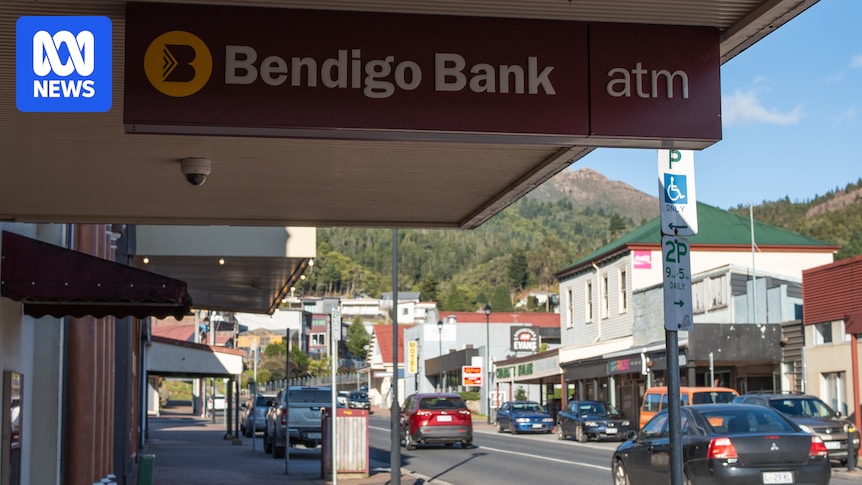
Tasmania’s West Coast is bracing for a significant change as Bendigo Bank prepares to close its Queenstown branch, the last remaining bank in the area. Announced in early July, the closure is part of a broader move affecting nine other branches across Australia. Once the Queenstown branch shutters, the closest banking facility will be in Burnie, requiring a daunting 300-kilometre, four-hour round trip.
The announcement has sparked a wave of concern and activism among locals, who are rallying against the decision while simultaneously preparing for a future without local banking services. The closure not only impacts individual customers but also poses significant challenges for local businesses that rely heavily on the bank for daily operations.
Impact on Local Businesses
The West Coast Wilderness Railway, one of Queenstown’s largest businesses, is particularly affected. With operations spanning the railway service and cafes in Queenstown and Strahan, the business handles substantial cash transactions daily. General Manager Ian Robertson expressed his shock at the closure, stating, “Bendigo Bank is supposed to be the community bank, so funny enough we would have expected them to take a little more notice about us before they made that unilateral decision.”
Robertson highlighted concerns about managing cash floats and daily banking needs, issues that are now compounded by the impending closure. “One of my major concerns is that we need change quickly, and for that we’ll probably have to carry some extra floats in the business,” he explained. The alternative, using Australia Post for banking services, is less than ideal due to associated fees and limitations.
Community Concerns
The closure affects not just businesses but also long-time customers of Bendigo Bank. Tracy Wales, a Queenstown resident, lamented the loss of personal banking services, saying, “We’ve been customers with Bendigo for about 25 years. And you [now won’t be able to] just pop in and get some advice or talk to someone over the counter. Very disappointing.”
Elderly residents, in particular, face significant hurdles. Bob Wales, aged 73, noted the difficulties for those not adept with digital banking. “It’s alright for people that are very digitally focused. I’m not. I’m 73 and I don’t do internet banking and stuff like that, so it makes it harder for elderly people,” he said. Shirley and Dale Sturges, aged 84 and 88, echoed these sentiments, expressing their reliance on in-person banking and the challenges of traveling to Burnie.
Community Mobilization
In response to the closure, the community has mobilized in an effort to reverse the decision. West Coast Mayor Shane Pitt highlighted the community’s determination, stating, “Originally there was a bit of, ‘here we go again, they’re shutting another one of our services down on the West Coast’, [but] the community’s right behind this now to see if we can save the bank.”
A public meeting in Queenstown on August 3 drew around 60 locals, along with state and federal representatives, all calling on Bendigo Bank to reconsider. Despite these efforts, the bank has maintained its decision, citing a review of customer preferences and business activity as reasons for the closure.
“About 21 per cent of its customers in Queenstown had visited the branch once in the past year,” a Bendigo Bank spokesperson stated, underscoring the bank’s rationale for the closure.
Looking Ahead
As the September 26 closure date approaches, the community remains hopeful for a change of heart from Bendigo Bank. Mayor Pitt remains optimistic, drawing parallels to other locations where community efforts have successfully reversed similar decisions. “Anything’s possible until it’s not,” he remarked, expressing hope that Queenstown’s bank might yet be saved.
The situation in Queenstown underscores the broader challenges faced by rural communities as banking services become increasingly centralized. As residents and businesses adapt to this new reality, the story of Queenstown serves as a poignant reminder of the vital role local banks play in regional economies.





